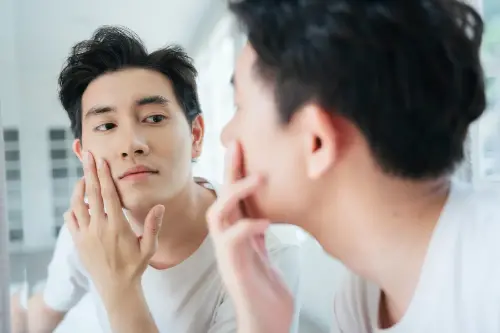Achieving spot-free skin has often been likened to finding the Holy Grail—a seemingly elusive quest that has many seeking a quick and effective solution in the form of pimple creams. The market is inundated with a plethora of options promising to banish blemishes and gift users with a flawless complexion. But with an overwhelming array of products, each claiming to be the panacea for pimples, how does one discern the safe and effective from the potentially hazardous? Let's delve into the truth about pimple cream ingredients and their effectiveness to demystify one of skincare's most sought-after products.

Understanding Active Ingredients
The holy trinity of pimple-fighting ingredients commonly found in these creams includes benzoyl peroxide, salicylic acid, and alpha-hydroxy acids (AHAs). Benzoyl peroxide works by killing bacteria that cause acne, while simultaneously reducing inflammation and unclogging pores. Salicylic acid aids in the breakdown of dead skin cells, preventing them from clogging pores and leading to pimples. AHAs, such as glycolic and lactic acid, help to exfoliate the skin and improve texture and pigmentation issues, as well as acne.
However, while these ingredients can be highly effective, they are not without their side effects. Benzoyl peroxide, for example, can cause dryness, peeling, and redness, particularly in higher concentrations. Salicylic acid, in sensitive individuals, can lead to mild stinging and skin irritation. As for AHAs, they can increase the skin's photosensitivity, emphasising the need for a broad-spectrum sunscreen when using products containing these acids.
Navigating Prescription Versus Over-the-Counter Options
Over-the-counter (OTC) pimple creams are easily accessible and can be effective for mild to moderate acne. In contrast, prescription creams may contain higher concentrations of active ingredients or different medications such as retinoids or antibiotics, and are intended for more severe cases or those resistant to OTC treatments. It’s vital to consult a dermatologist before venturing into prescription treatments, as they will tailor the therapy to your specific skin type and concerns.

Use and Misuse: The Make or Break of Effectiveness
Even the most potent pimple cream will fall short of its promises without proper use. A common pitfall is the overuse or combination of multiple acne-fighting products leading to dry, irritated skin—an outcome that's counterproductive to achieving a clear complexion. Following product instructions, using them as part of a consistent skincare routine, and giving them time to work are key elements for effectiveness. Patience is indeed a virtue, as the skin’s turnover cycle can take several weeks, which means that results from any new skincare product can take at least that long to become visible.
Sensitive Skin Considerations
Those with sensitive skin types must tread lightly on the path to pimple-free skin. Fragrances, preservatives, and certain oils can provoke allergic reactions or further irritate acne-prone skin. It's advisable to seek out 'non-comedogenic' pimple creams, which are specifically formulated to not block pores. Doing a patch test before fully incorporating a new pimple cream into your regimen can prevent a full-blown skin reaction and save one from undue distress.
The Role of Lifestyle in Acne Management
It's not just what’s applied topically that influences the condition of our skin. Diet, stress, hormonal imbalances, and lifestyle choices like smoking can all contribute to the development and persistence of acne. A comprehensive approach that includes a healthy diet rich in omega-3 fatty acids and antioxidants, regular exercise, stress management techniques, and adequate sleep can be just as important in maintaining clear skin as the right topical treatment.

Miracle Cure or Part of a Bigger Picture?
In conclusion, pimple creams can be a safe and effective tool for achieving clearer skin when used correctly and in conjunction with a healthy lifestyle. It's imperative to understand and heed the advice on active ingredients, realise the importance of patience and proper application, and consider one's unique skin type when choosing a pimple cream. Unmasking the truth about these often-misunderstood skin saviours reveals that while no pimple cream is a magical quick fix, when selected wisely and used judiciously, they can play a pivotal role in one's skincare arsenal for combating acne and promoting a blemish-free complexion.
